
YEKATERINBURG, Russia, June 4 (Xinhua) -- Leaders from Russia and the European Union (EU) pledged Tuesday to foster a concrete partnership despite conflicting views on some bilateral and international issues.
President Vladimir Putin told a news conference following the 31st Russia-EU summit here that business ties between the two sides had been maturing gradually despite uncertainties about global economic growth.
Citing promising bilateral trade and investment figures in 2012, he said there was a good base for further deepening the mutually beneficial ties, and called for closer contacts to build mutual trust.P "All this is the clear evidence of close interdependence, so we have to listen to each other, consult each other and work with each other," Putin said, hinting the two sides should prioritize business over brawls.
Meanwhile, leaders from both sides seemed to play down their divergences over visa-free travel and energy cooperation and chose to look on the bright side.
In late March, European Commission President Jose Manuel Barroso signed an agreement with Russian Prime Minister Dmitry Medvedev on a Russia-EU roadmap for energy cooperation lasting until 2050.
Calling the document "a significant achievement" in energy ties during Tuesday's press conference, Barroso abstained from mentioning the so-called Third Energy Package, which has irritated Russia.
The two sides also continued their visa-free regime talks, though certain technical conditions have yet to be agreed, Barroso added.
By the end of the latest summit, the two sides also reached an agreement on anti-narcotics cooperation, confirmed the re-launch of counterterrorism coordination and reached consensus on civil protection.
All these agreements made the relations more predictable and offered a legally binding framework for a deeper and stronger partnership, Barroso said.
Besides bilateral issues, top Russian and EU leaders also managed to bridge their huge gap over the Syria crisis and confirmed their support for a political solution to end the conflict.
There was no alternative to a political solution towards ending the Syria crisis, European Council President Herman Van Rompuy said.
The European Union confirmed the re-launch of the Geneva-Two initiative, jointly raised by Russia and the United States, Van Rompuy said, adding officials from the 27-member bloc had been working closely with Russian Foreign Minister Sergei Lavrov over the issue.
The EU recently lifted an arms embargo on the Syrian opposition, while Russia confirmed its contractual obligations to supply anti-aircraft missiles to the government forces.
When asked by a reporter about possible obstacles hindering the political solution to the crisis, Van Rompuy said, instead of focusing on divergences, parties should concentrate more on the preparations for and negotiations at an international conference on Syria.
Russian, U.S. and UN officials would meet Wednesday in Geneva to prepare for the Syria meeting, Russian and UN officials said.
An action group comprising some world powers met last year in Geneva and agreed that a transitional government should be set up in Syria to end the long-standing conflict but did not stipulate the ouster of President Bashar al-Assad.
The Yekaterinburg summit was the 31st high-level bilateral contact since 1997, when the Partnership and Cooperation Agreement (PCA) came into force. The PCA created a system whereby the two sides hold two summit meetings a year, in Russia and in the member state holding the EU's rotating presidency.
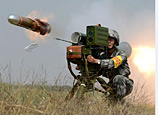
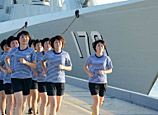
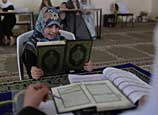

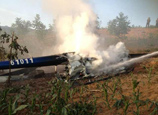
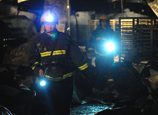



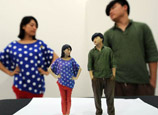








![]()
